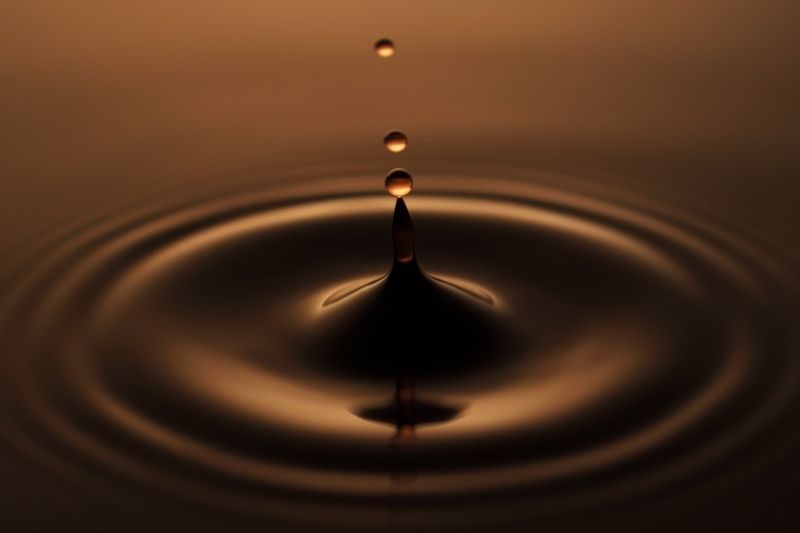Some people are under the impression that decaf coffee is a weaker, inferior product. However, there are many reasons to drink decaf coffee – here are just eight of them!
So next time you’re at the café, consider ordering a decaf cup instead of your usual caffeine fix. You might be surprised by how good it tastes.

If you're like most people, you probably think of decaf coffee as a watered-down version of the real thing. But what if we told you that there are plenty of reasons to drink decaf coffee – reasons that have nothing to do with avoiding caffeine? Here are eight benefits of drinking decaf coffee:
1. Lower Acid
Decaf coffee is lower in acid than regular coffee. This means it's gentler on your stomach and can be easier on your digestion. Decaf coffee is also lower in caffeine and has a milder, nutty taste.
Although it's preferred by many people who like to watch their caffeinated intake, some coffee lovers contend they would never drink decaf because they wouldn't enjoy the flavor. But there are plenty of reasons to make the switch — especially if your summer coffee routine involves iced coffee or you want a post-dinner java that won't keep you up all night.

2. A Source of Antioxidants
Decaf coffee contains antioxidants, which can help protect your body against disease. In addition, research suggests that antioxidants may help improve heart health and protect against cancer.
This is because antioxidants scavenge harmful toxins and free radicals from the body, which can damage cells and lead to disease. So if you’re looking for a healthy coffee choice, decaf is a great option.
Just make sure to avoid added sugars and creamers.
Decaf coffee is also a good source of magnesium, potassium, and other minerals important for good health. For a healthier coffee drink, try brewing your own coffee at home with fresh ground beans, or try an unsweetened iced latte or cappuccino.

3. Protection against diseases
Some studies have shown that decaffeinated coffee may help protect against Parkinson's disease and other forms of dementia. This is good news for coffee drinkers who are looking to reduce their caffeine intake, or for those who cannot drink caffeinated coffee for health reasons.
If you are looking for a healthy beverage that can help protect against Alzheimer's and Parkinson's diseases, decaffeinated coffee is a good option. Just make sure to choose quality brands that do not use harsh chemicals in the decaffeination process.
4. Low-calorie intake
Decaf coffee can help you maintain a healthy weight since it is lower in calories than regular coffee. A single cup of decaf coffee has only two calories, compared to the 95 calories in a regular cup of coffee. This can add up to a significant difference if you drink several cups of coffee per day. Decaf coffee also contains antioxidants that can help protect your body from disease.
If you are looking for an alternative to regular coffee that is lower in calories and still provides health benefits, decaf coffee is a great choice. It is available at most grocery stores and coffee shops, so you can easily include it in your daily routine. Enjoy a cup of decaf coffee with breakfast, during your break at work, or any time you need a caffeine boost. You'll be happy you made the switch!

5. Less caffeine
Decaf coffee is a great choice for people who are sensitive to caffeine or who want to avoid its effects. Decaf coffee is coffee that has had most of the caffeine removed. It still has many of the same flavors and characteristics as regular coffee.
There are many different types of decaf coffee available. Some decaf coffees are made from Arabica beans, while others are made from Robusta beans. Arabica beans tend to have a smoother flavor than Robusta beans. There are also many different brands of decaf coffee available.

An average person should consume around 300mg of caffeine per day. This is equivalent to around three 8oz cups of coffee. If you drink more than this, you may start to experience caffeine's negative effects, such as restlessness and anxiety.
If you are trying to reduce your caffeine intake, switching to decaf coffee is a good way to do it. Decaf coffee has around 2-6mg of caffeine per cup, compared to around 80-180mg of caffeine in regular coffee. This means that you can still get the benefits of coffee without consuming too much caffeine.
Some people who must avoid caffeine can drink as little as 40 milligrams of decaf per day before they experience negative effects. That's about the same amount of caffeine as a cup of tea.
6. Suitable for pregnant women
Decaf coffee is also a good choice for pregnant women. Caffeine can be harmful to the developing baby, so pregnant women should avoid drinking regular coffee. Decaf coffee does not contain caffeine, so it is a safe choice for pregnant women.
Pregnant women should drink around two cups of decaf coffee per day. This will provide them with the nutrients they need, without exposing their baby to too much caffeine. Decaf coffee is a great source of antioxidants, potassium, and other minerals important for good health.

7. No acid reflux
If you suffer from acid reflux, decaf coffee may be a better choice than coffee. Acid reflux occurs when stomach acid flows into your esophagus, which can cause heartburn and other symptoms.
Coffee can make acid reflux worse because it can relax the sphincter at the bottom of the stomach. This allows stomach acid to flow up into your esophagus, which can exacerbate reflux symptoms.
Decaf coffee does not have this effect on the body. It is naturally low in acids, so it doesn't contribute to acid build-up in your digestive system. If you are diagnosed with acid reflux or GERD, consider switching to decaf coffee instead of regular coffee. You'll be amazed at how much better you feel!
8. Lowers cholesterol
Reduced caffeine-decaf coffee may also have some health benefits. It can be used to reduce cholesterol levels in the body. Decaf coffee has high levels of chlorogenic acid, which is a natural antioxidant that can help protect your cells from damage.
Chlorogenic acid boosts metabolism and reduces fat storage in the liver, which reduces cholesterol production. By reducing the amount of bad cholesterol produced by your body, you can lower your risk for heart disease, cancer, and other conditions.


Final Thoughts
Decaf coffee has a lot of benefits that make it worth drinking. It’s not just for people who can't drink caffeine, but also for those looking to get the health benefits without the buzz. We hope you enjoy these 8 reasons why decaf coffee is so great! So next time you're looking for a delicious and healthy drink, consider reaching for a mug of decaf coffee!
Buy Decaffeinated - Premium Blend Coffee
Get Free Bonus Books

Sign up for free to the Japanese Coffee Club to get advice and exclusive articles about how to choose Japanese Coffee, and tips, tricks, and recipes for enjoying Japanese coffee.



























